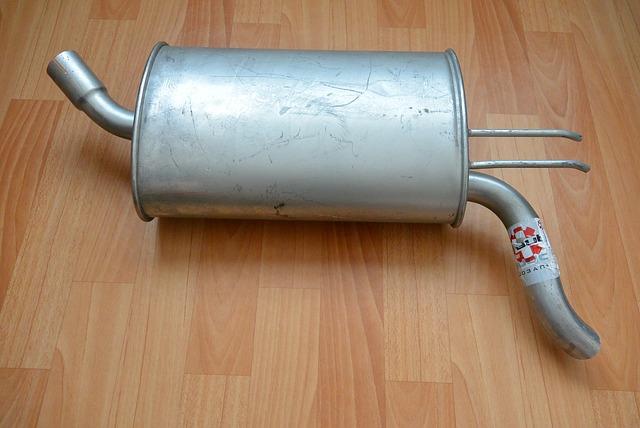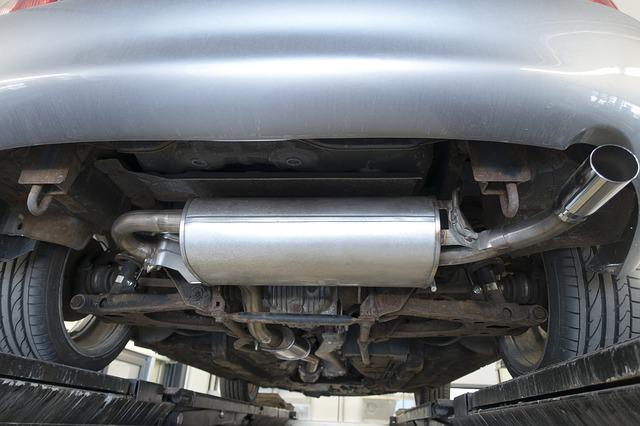
Car owners know that a muffler’s exhaust is noxious and unsafe. When your car engine speeds up or under high load, its exhaust gases are pumped into the muffler. The muffler cools the gases down and then expels them out of the tailpipe. Car exhaust emits harmful toxins such as carbon monoxide (CO), hydrocarbons (HC) and nitrogen oxides (NO).
A muffler reduces this toxic by-product to a level where it won’t affect you negatively as you breathe in nearby air. Nevertheless, a hot muffler can still pose danger to you if it gets too hot. This article shows you how hot does a muffler get? How to know what its hot limit is? In this blog post, we explain what hot limits are and how they help you keep your mufflers safe. Read on to learn more about how hot does a muffler get?
What Is A Hot Muffler?
A muffler’s exhaust temperature is the measure of how hot your exhaust gases are coming out of the tailpipe. Exhaust temperature is a crucial indicator of your muffler’s health. If it’s getting too hot, this means that your muffler is under excessive strain and may need to be replaced sooner. If your muffler is getting too hot, this article can help you figure out How Hot Does A Muffler Get, what the problem is and how to fix it.
There are several factors that affect a muffler’s exhaust temperature. Among the most significant ones are your car’s engine performance, the muffler’s design and the surrounding temperature. Your muffler gets hot when the gases it handles are at a higher temperature than the muffler itself is designed to withstand. If your muffler is getting too hot, it means there’s too much strain on the system and something needs to be done about it. Lets find out about How Hot Does A Muffler Get and its remedy.
What Is A Muffler’s Exhaust Temperature Limit?
A muffler’s exhaust temperature limit is the highest temperature your muffler can get. If your muffler is getting too hot, this article will show you what the exhaust temperature limit is, how to identify if your muffler is getting too hot, and the steps you can take to fix it. Exhaust temperatures above the muffler’s limit can be dangerous. So read below on How Hot Does A Muffler Get and take precautions.
If you’re driving a car with an exhaust pipe, you probably know what the muffler is for: letting the exhaust out of your car. But do you know how hot does a muffler get? How do you tell if it’s at its hot limit? Let us explain.
At high temperatures, toxic emissions increase in CO, HC and NO. High emissions can lead to carbon monoxide poisoning. Carbon monoxide is a colorless, odorless and tasteless gas which can cause serious health problems when it’s breathed in at high levels. High emissions can also cause your muffler to crack. If your muffler is getting too hot, you need to do something about it.
Signs Of A Muffler Getting Too Hot
1. The muffler is too loud: If your muffler is getting too hot, it will become too hot for your ears. A muffler is too hot when it’s too loud due to excessive noise. This is a common sign that you need to take action for your muffler’s health.
2. Your muffler is too hot: Another sign that your muffler is getting too hot is if the exhaust temperature gauge in your car is hot. If the gauge is hot, then your muffler has already broken and you need to replace it.
3. Your muffler is thin: A muffler that is too hot will be thinner than a muffler that is not too hot. A hot muffler will have a gauge thickness of approximately 1/8 inch. A muffler that is too hot will be about 1/4 inch thick.
4. Your muffler is cracked: A cracked muffler will have a gauge that is thicker than a muffler that is not too hot. A cracked muffler will be about 3/8 inch thick.
5. Your muffler will be too loud: A muffler that is too hot will be too loud. A muffler that is too hot will whistle or hum when you rev the engine. A muffler that is too hot will also produce a gassy or raspy noise.
6. Your muffler is damaged: A damaged muffler will have rusted metal or cracks in the muffler itself. A damaged muffler will also have a gauge that is thicker than a muffler that is not too hot.
7. Your muffler is too hot for a muffler shop: A muffler shop will not weld or cut a muffler that is too hot. A muffler that is too hot will have a gauge of approximately 3/8 inch.
8. Your muffler is too hot for a muffler shop: A muffler shop will not weld or cut a muffler that is too hot. A muffler that is too hot will have a gauge of approximately 3/8 inch.
How to Tell If Your Muffler Is Too Hot
You will know if your muffler is getting too hot if the gauge on your muffler is hot. If the gauge is hot, then you need to find out what is causing the excessive strain on your muffler. Once you know what is causing the excessive strain, you can do something about it. Here’s how you can tell if your muffler is too hot.
Look at your muffler’s gauge.
Your muffler’s gauge should be red if your muffler is cold, or green if your muffler is hot. However, if your muffler is too hot, it will be too hot for your gauge to show red or green. The gauge will have a black color, or have a black needle inside it.
Visual inspection:
If your muffler is getting too hot and the gauge is black or has a black needle, you can visually inspect your muffler for damage. A muffler with rusted metal will have a black gauge and a broken muffler will show visible cracks in its metal.
Try a different gauge:
If the gauge on your muffler is black or has a black needle, you can use another gauge gauge to check your muffler.
Things to do when a muffler gets too hot
Wait for it to cool down:
It’s important to wait for your muffler to cool down before you start working on it. When your muffler is hot, it will be too soft and brittle. You will be able to bend it back into shape, but it will be much harder to work with. Wait for it to cool down and then you can work with it.
Inspect the muffler’s gauge:
Inspect the gauge on your muffler while it’s hot. If it’s black or has a black needle, then do something about it. If it’s red, you need to wait for it to cool down.
Re-position the muffler:
If your exhaust system is too tight against the muffler, you can position the muffler away from the exhaust pipe. This will give you enough space to work with the muffler.
Inspect the muffler:
If your muffler is rusted or cracked, you need to inspect it for damage. If your muffler is too hot, you need to inspect it for damage and replace it.
Things to avoid when muffling exhaust
- Don’t exhaust your car’s exhaust inside your garage. Exhaust gases can come into contact with the walls of your garage, causing the gases to become hot and toxic.
- Don’t let your car’s exhaust heat up too much in a parking lot or on a road. This will cause the gases to become too hot, increasing their toxic emissions.
- Don’t let your car’s exhaust heat up in direct sunlight. This will cause the gases to become too hot, increasing their toxic emissions.
- Don’t let your muffler get too hot. This will cause the gases to become too hot, increasing their toxic emissions.
Conclusion
Your muffler is a critical component of your car’s exhaust system, and it can get too hot if something is wrong with it. This article explains how hot does a muffler get? And what you can do about it when it does. A hot muffler is dangerous, and can lead to harmful emissions and damage to your car. If you want to prevent a hot muffler, you need to take care of it. If you notice that your muffler is getting too hot, read above article on How Hot Does A Muffler Get.
When you’re driving, your car creates noise. That noise can be annoying if it’s loud or if it sounds like it originates from a tin can. If the noise is coming from your muffler, things could become even more annoying. Hot-rodding your car is fun, but what happens when hot-rodding results in excessive noise? A muffler gets hot because of excessive heat generated by the exhaust system.



